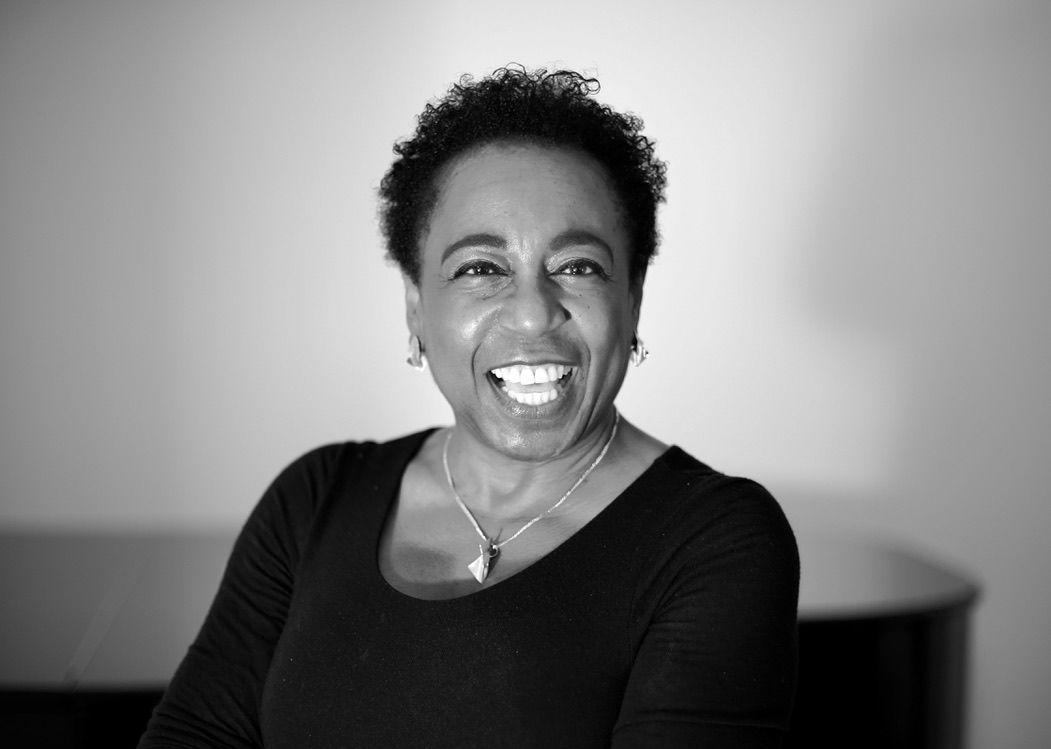From one of the first black women at the top of an FTSE 25 company
“When I left my executive role in the corporate world to embark on a career change that comprised of a portfolio of activity, I was one of only 5 women in the top 100 of my organisation,” tells me Yetunde Hofmann. She was the only black person and the only woman in senior management. It was a pivotal milestone in her life’s work and career, which taught her a lot about the world of work, culture, change and leadership, as well as gender equality, from a position of intersectionality, although those learnings are becoming more profound from a place of looking back. “When you are in the pit and have your head down, spinning multiple projects, competing priorities and diverse and complex stakeholders, it can be difficult to take the time out to reflect on the background, reasons, intent and causes behind certain decisions and experiences,” she says.
Yetunde shares some of the lessons on gender equality her career has taught her below.
-
The black glass ceiling is present.
The black glass ceiling is present and visible. It is the elephant in the room because it is often not acknowledged. In the nineties, I was head of equal opportunities for an FTSE 100 company. Today all the issues discussed and challenges faced are the same as they were then. Very little progress has been made. The black ceiling is integrated into the very fabric of how business is done today. It preserves tradition and sits behind the slow pace of change. Therefore, unless business leaders are willing to dismantle some of the sacred tenets of their organisations, challenge deeply held beliefs, embrace discomfort and question the purpose of highly respected and well-serving recruitment, development, performance and promotion systems, no progress will be made. It takes a leader who knows that his/her purpose lies beyond the bottom line and genuinely believes that every human being has a contribution to make that is good, to bring the change required.
-
Start making bold requests.
Make requests for you and other women, regardless of whether you know them or not. Make requests for your development; that your company invests in you. Make requests for that promotion and be ready with your reasons why. Request the information you have the legal right to have – e.g., what is on your personnel file in work; what’s written about you and by whom. Ask to be sponsored on to that learning programme that you know will contribute to your career advancement. Imposter syndrome hits women of colour harder than other people, as highlighted in a BBC article. That doesn’t mean you shouldn’t go for what you want and what you know you deserve. The fear of burning bridges and looking like the troublemaker can hold you back from being bold. The one thing to remember is that inaction leads to nil results!
-
Find yourself a mentor.
When you have a mentor; that confidential sounding board who will give you advice and share with you the benefit of their experiences, both good and bad, so that you can avoid any potential pitfalls, what you learn can help you address imposter syndrome. A mentor internally who understands the culture of your organisation, the politics and the unspoken ways in which decisions are made, can be an invaluable asset and they can come from the most unexpected of places. Having that confidential sounding board when faced with a dilemma provides a safe space in which to test ideas before turning them into formal proposals and requests. The more senior you become, however, the more important it becomes to have a mentor with whom you share some similar characteristics – what it is like to be a woman and a black woman leader. That unique viewpoint that understands exactly what you mean can be a great help. It’s brilliant therefore to know that today, there are organisations that support the black community and in particular black women across different industries and professions. It should not take long to find a mentor if you’re determined. LinkedIn for example can be a great pool in which to find a mentor - you could even write a post requesting a mentor and the kind of mentor that you want. There are other black women – and indeed black men and men and women of all races – who genuinely want to be allies, who will reach out in response. Meet 3-4 of them and then decide who’s the most suitable person, making sure to write to all the others with kindness knowing that one day you may reach out again.
-
Find yourself a sponsor
Now, this is different from a mentor. I learned this the hard way. Whereas a mentor is a great sounding board, a sponsor is the person who acts as your agent. He or she proactively advocates and champions you. This is the person who, when the promotion board in your company is considering the next round of promotions, says: “I believe in her; she’s great talent; I think we should promote her; I’ll have her in my team.” This is the person that says I’ll open the door to that head of procurement/buying director in company X or Y so that you can make your pitch to the real decision-maker. And when you have identified your sponsor be proactive in expressing your expectations and ensuring that you both are aligned on purpose and what a great sponsor and sponsoree relationship looks like.
-
Spend your own money
I know not all of us can afford to spend a lot of money. There however may be times when if you’re not backed by your own company to participate in a training programme or to join a networking community for which membership costs money, you may want to back yourself by investing in yourself. If you don’t believe in yourself to win and succeed, who will? There’s that famous saying: “If it’s to be, it’s up to me!” The nature of the economy today means that many institutions and training providers may consider staggered payments for our attendance on that training programme, the participation in which may result in a breakthrough for you personally and professionally. When I stepped out of my executive career into a portfolio one, a great decision I made was to invest some of my savings in the participation of workshops that kept me fresh and attending conferences through which I would broaden and diversify my personal and professional network.
-
Leverage the power of network
If there is anything I have learned in my life to date, it is the power of the network – meeting, engaging with and swapping ideas with people from the same and different industry backgrounds, professions, ways of thinking and so on. It not only enriches you personally, but it enables you to learn fast from the experiences of others and can facilitate the opportunity to meet connections of all kinds that can lead to jobs, promotions, new business opportunities or indeed new friendships. What I also know is that when black women come together to network, learn, share and support each other, so much more becomes possible. Not just for the individual but also for the organisation that employs and the community.
-
Champion yourself and other black women
As a black woman, you’re gifted and talented. You are ambitious too. This is the time more than ever to share what you’ve achieved, your skills, what you’ve learned or are learning from your success and the advice you would give to others coming behind you or choosing to follow a similar path. And, as you do that, champion and acknowledge the talent, skills and gifts of other black women. When black women amplify the voices of each other, it sends a signal to the wider community that you know who you are and what you’re about. I am increasingly making it my life’s work to do so. If I don’t – then who will? For many years I did not want to be labelled or seen through the lens of my race and gender. Now I’ve come to realise and appreciate that whilst this is not what defines me, it is an integral part of who I am. I can, through my own voice, join with others – sponsors, allies and advocates – to continue to press for change. A change that benefits all talent, including the black female leader.
-
Love-based leadership holds the key
Love, as defined in the book Beyond Engagement – the value of love-based leadership in organisations, is this: it is an unconditional acceptance of all of who I am as a human being and an unconditional acceptance of all of who you are – who others are. It, therefore, is the ability and willingness to see who another human being is, beyond their gender and skin colour. Racial equality is one of the most needed and yet most complex issues that business leaders have to address. When you add the dimension of gender, it becomes doubly challenging. And it doesn’t stop there. When a leader operates from a place of love, it means an appreciation of a responsibility that goes beyond the bottom line; a willingness to sacrifice gains in the short term for the extraordinary results that can be achieved and sustained in the long term. It means a willingness to call out behaviour that goes against the values of the organisation regardless of how high performing and popular the perpetrator is. This is the key to gender and race equality. It is the key to inclusion.
I could share yet more lessons learned. I, however, am thankful for today. There are increasingly more black females in positions of influence and critical decision making in organisations. I am hopeful that, one day, it will become challenging to count the number of black women leaders on one’s fingers. I am particularly inspired by the women and black women in the younger generation who are determined, full of ambition and are motivated by the significant change they can and will effect in the world of work.
Yetunde Hofmann is a Board level executive leadership coach and mentor, global change, inclusion and diversity expert, author of Beyond Engagement and founder of SOLARIS – a pioneering new leadership development programme for black women. Find out more at http://www.solarisleadership.com/











